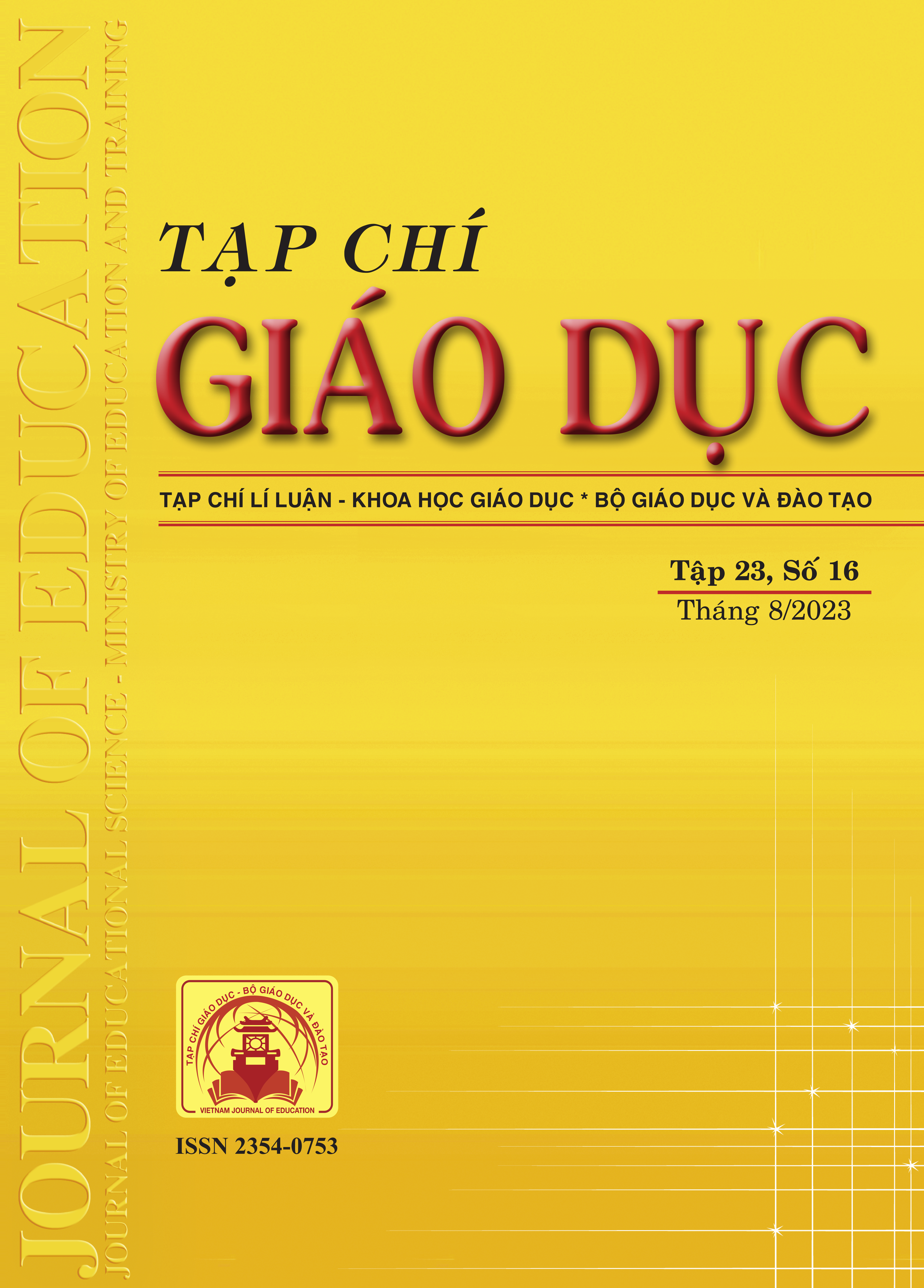Dạy học Toán thông qua tranh luận khoa học nhằm phát triển năng lực giao tiếp toán học cho học sinh: nghiên cứu trường hợp ở trường trung học phổ thông Lý Thái Tổ, Thành phố Hồ Chí Minh
Tóm tắt
Mathematical communication capacity is one of the five core components of mathematical competence that need to be formed and developed for students, which is clearly stated in the goals of the 2018 general education program in Mathematics. This study introduces a process of teaching mathematics through scientific debate to develop mathematical communication capacity for students. The proposed procedure is illustrated with the lesson on “Intersection of two planes in space” (Grade 11- Geometry) for students at Ly Thai To high school, Ho Chi Minh city. This study puts students in the context of solving the problem of finding the intersection of two planes in space with the stages of a scientific debate, allowing students to share ideas of solutions to the problem, present mathematical arguments, give critical statements to promote the development of components of mathematical communication capacity.
Tài liệu tham khảo
Arsac, G., Chapiron, G., Colonna, A., Germain, G., Guichard, Y., & Mante, M. (1992). Initiation au raisonnement deductif au college: une suite de situations permettant l'appropriation des regles du debat mathematique. Presses Universitaires Lyon.
Bibby, N. (2014). Discovering the world through debate: A practical guide to educational debate for debaters, coaches, and judges. New York: International Debate Education Association.
Bộ GD-ĐT (2018). Chương trình giáo dục phổ thông môn Toán (ban hành kèm theo Thông tư số 32/2018/TT-BGDĐT ngày 26/12/2018 của Bộ trưởng Bộ GD-ĐT).
Charlot, G., Lecorre, T., Legrand, M., Leroux, A., & Martino, H. D. (2015). Le debat scientifique en classe: une demarche d’investigation collective pour une culture scientifique commune. In Theis L. (Ed.) Pluralites culturelles et universalite des mathematiques : enjeux et perspectives pour leur enseignement et leur apprentissage - Actes du colloque EMF2015 - GT10, 847-860.
Eveleigh, H., & Tozzi, M. (2002). Pourquoi debattre en classe ? In Cahiers pedagogiques, n°401.
Hatano, G., & Inagaki, K. (1991). Sharing Cognition through Collective Comprehension Activity. In Perspectives on Socially Shared Cognition, edited by Lauren B. Resnick, John M. Levine, and Stephanie D. Teasley. Washington, D.C.: American Psychological Association.
Hutapea, N. M., Saragih, S., & Sakur, S. (2019). Improving mathematical communication skills of SMP students through contextual learning. Journal of Physics: Conference Series, 1351, 1-10. https://doi.org/10.1088/1742-6596/1351/1/012067
National Council of Teachers of Mathematics (NCTM) (2000). Principles and Standards for School mathematics. Reston, VA: Author.
Randi, E., & Faith, C. (2010). Guiding Principles for Fostering Productive Disciplinary Engagement: Explaining an Emergent Argument in a Community of Learners Classroom. Cognition and Instruction, 20, 399-483.
Wardhana, I. R., & Lutfianto, M. (2018). Analisis Kemampuan Komunikasi Matematis Siswa Ditinjau Dari Kemampuan Matematika Siswa. Jurnal Pendidikan Matematika, 6(2), 173-184.
Tải xuống
Đã Xuất bản
Cách trích dẫn
Số
Chuyên mục
Giấy phép

Tác phẩm này được cấp phép theo Ghi nhận tác giả của Creative Commons Giấy phép quốc tế 4.0 .












